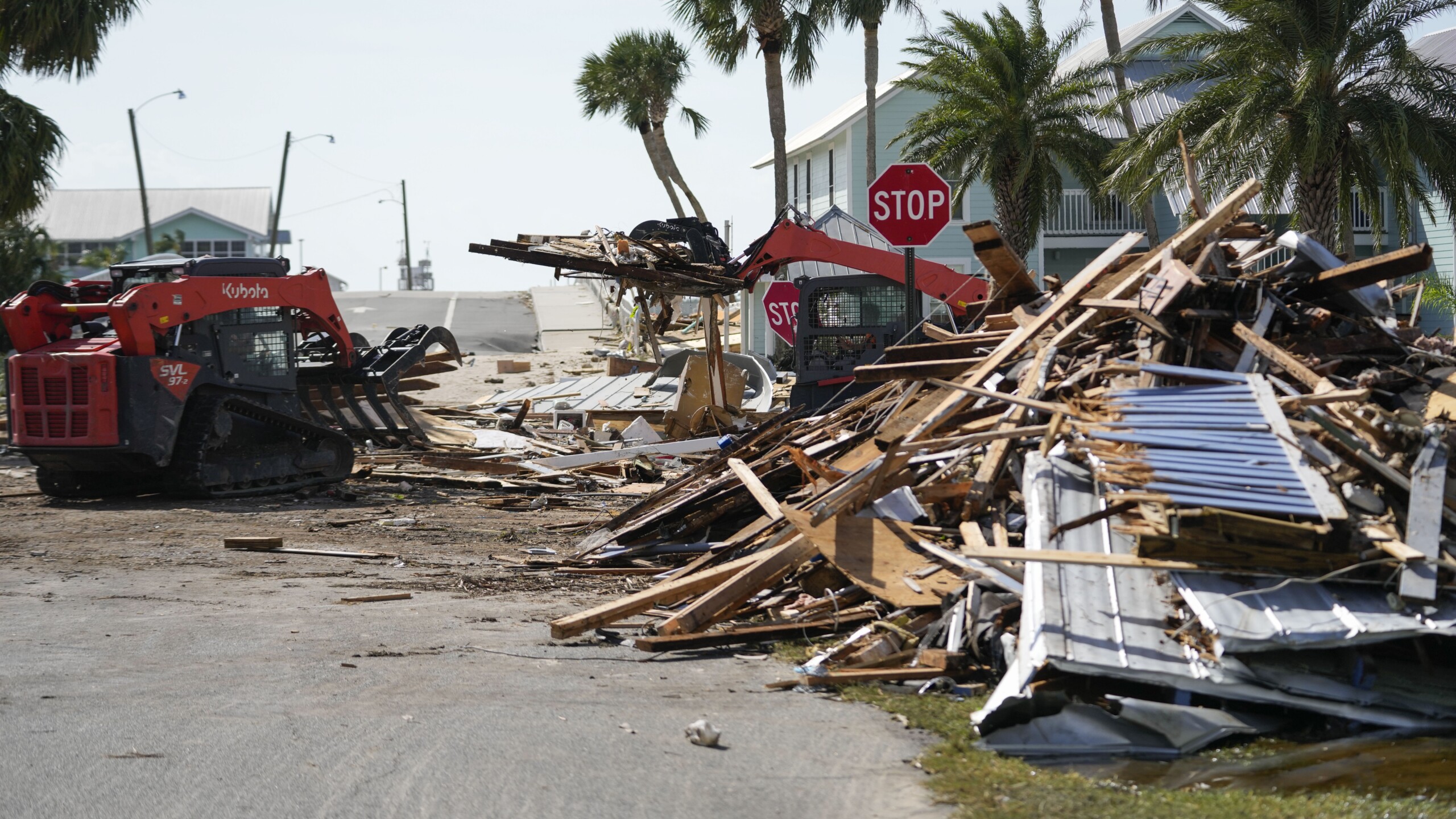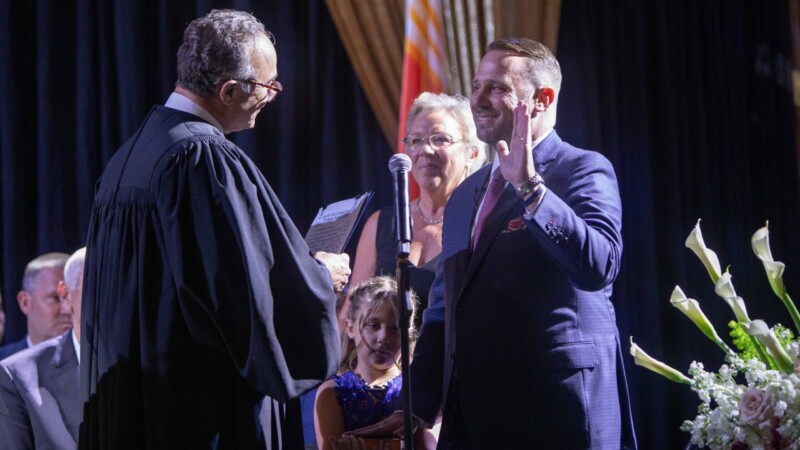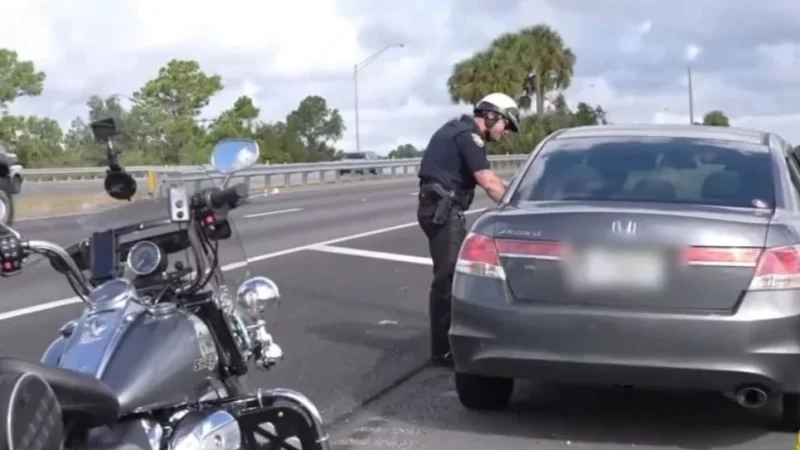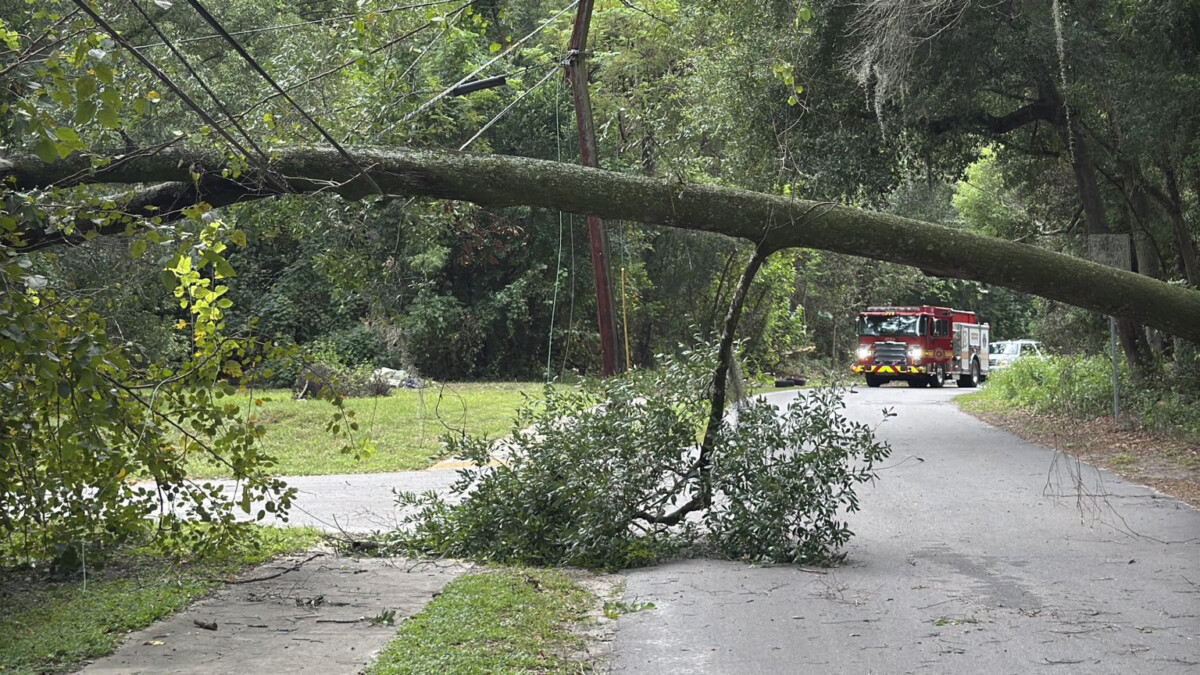Rescue and recovery efforts were underway Friday morning in North Florida’s Big Bend region and other areas of the state after the Category 4 Hurricane Helene made landfall Thursday night in Taylor County.
State Division of Emergency Management Director Kevin Guthrie implored people not involved in recovery efforts to stay off the roads as authorities conducted search-and-rescue efforts amid debris and dissipating storm surge.
“Please do not go out and visit the impacted areas,” Guthrie said Friday morning at the state Emergency Operations Center. “We have over 1,500 search and rescue personnel in the highly impacted areas right now. Do not get in their way. We need you to stay off the roads and get out of our way so that we could go do our jobs.”
Packing 140 mph winds, Helene swept through North Florida after surging onto land about 11:10 p.m. Thursday east of the mouth of the Aucilla River, about 10 miles from the Taylor County community of Perry. But storm surge from the massive storm also caused damage up and down the state’s Gulf Coast.
Hillsborough County Emergency Management Director Timothy Dudley said Friday morning many people remained in areas hit by storm surge after they did not leave as Helene moved north parallel to the coast.
“Our rescue teams are currently working hard in the field to save lives,” Dudley said. “Unfortunately, many people did not heed our order to evacuate Zone A, and they have left themselves in a very dangerous situation. As forecasted, the storm surge reached 5 to 8 feet at various locations throughout Hillsborough County, and the danger is not over yet.”
Authorities said two deaths had been attributed to the storm Friday morning. Gov. Ron DeSantis said the fatalities involved a motorist whose vehicle was hit by a highway sign in Tampa and a Dixie County resident who was inside a home hit by a fallen tree.
The storm had left more than 1.24 million utility customers without electricity.
Power outages remained close to 100% in Suwanee, Taylor, Hamilton, Madison, Dixie and Columbia counties, which were directly in Helene’s path. The storm also left people in the dark in numerous other areas of the state.
For example, Duke Energy Florida said that as of 7:30 a.m., it had restored power to nearly 198,000 customers, but more than 402,000 still had outages.
“Our crews worked through the night to assess the immense damage caused by Hurricane Helene and get the lights back on where conditions allowed,” Todd Fountain, Duke Energy Florida storm director, said in a prepared statement. “We’ve made significant progress over the last 24 hours, but we still have a lot of work ahead of us.”
Similarly, Florida Power & Light said that as of 6 a.m., 214,000 of its customers did not have power. Florida Municipal Electric Association Executive Director Amy Zubaly said 235,839 municipal-utility customers remained without power as of 9 a.m.
Helene was the third hurricane to make landfall in rural Taylor County in a little more than a year, after Hurricane Idalia in August 2023 and Hurricane Debby last month.
During a news conference Friday morning, DeSantis worried that there might be a “sense of trauma” for communities that also have had to rebuild after the two earlier storms.
“I think there’s a demoralization,” DeSantis said. “It’s like, ‘OK, we worked all this, and then now we could potentially be worse off than we were even before.’”
But DeSantis added the state will assist people in what were already designated as “fiscally constrained” rural communities.
“We’re going to have support there,” DeSantis said. “It’s not easy, but we’ll get through it.”
Interstate 10 and Interstate 75 were open Friday morning. Bridge inspections were underway along the Gulf Coast, where storm surge closed a number of bridges.
Florida Department of Transportation Secretary Jared Perdue said “cut and toss” efforts continued to clear debris from roads.
“There is a lot of vegetative debris. There’s a lot of debris in the roads,” Perdue said. “Trees can be wrapped in power lines. Please do not get out there and start trying to do things on your own.”
Tampa International Airport reopened Friday morning. Also, airports in Tallahassee, Gainesville, Lakeland and St. Petersburg-Clearwater were expected to open.
Perdue said Port Tampa, which was among the state’s seaports that experienced monster storm surge, plans to “open as quickly as possible.”
“They have to inspect the channel, but their fuel operation will be back up and running within the next few hours,” Perdue said.






